Executive coaching for CEO’s has become an indispensable tool for leaders aiming to scale their organizations and address the challenges of leadership. With the right executive coaching, CEOs can sharpen their leadership abilities, improve decision-making, and develop strategies that promote sustainable growth.
Executive coaching offers a tailored approach to optimizing a CEO’s leadership skills and organizational acumen, ultimately benefiting both personal and business performance. In this blog, we will explore the reasons why executive coaching for CEO’s is essential for driving business growth and how it helps foster long-term success.
The Importance of Executive Coaching for CEO’s
Executive coaching for CEO’s is a personalized development process essential to supporting top-level executives in honing their leadership skills, improving decision-making, and building robust strategies.
Unlike traditional business coaching, executive coaching focuses specifically on the unique challenges faced by CEOs—balancing vision, strategy, and organizational demands. As the chief decision-maker, the CEO’s leadership influences the entire company, which makes their growth critical to the overall success of the business.
CEOs are depended on to make high-stakes decisions that determine the direction of their companies, especially during periods of change, growth or uncertainty. Executive coaching helps them navigate these challenges by offering expert guidance, feedback, and strategies for growth.
Coaching also helps CEOs develop self-awareness, sharpen their interpersonal communication skills, and refine their leadership approaches in ways that directly contribute to the company’s success.
According to research from McKinsey & Company, companies investing in leadership development see a direct correlation between improved performance and leadership effectiveness. This is especially true when coaching is personalized to meet the specific needs and goals of the CEO.
What CEOs Really Want from Coaching
CEOs approach executive coaching with specific goals in mind. They are not just looking for advice—they want actionable insights, tools, and frameworks that help them drive their businesses forward. Here are some of the most common tangible outcomes that CEOs seek from coaching: Harvard Business Review
Personalized Development
CEOs often struggle with generalized canned leadership advice. They require a coaching approach that is tailored to their specific industry, leadership style, business challenges, and growth stage. Personalized coaching helps them to address the unique issues they face in running the organization, such as aligning teams, refining company vision, or managing operational hurdles.
Enhanced Decision-Making Skills
CEOs frequently make high-stakes decisions with far-reaching consequences. Executive coaching for CEO’s helps improve their decision-making skills by focusing on critical thinking, risk management, and analysis. Research highlights how decisive leadership directly impacts organizational success, making it a crucial element of coaching for CEOs.
Stress Management and Work-Life Balance
Running a company is incredibly stressful, and many CEOs find it difficult to maintain balance. Executive coaching provides valuable techniques to help CEOs manage stress, prioritize their time, and set boundaries.
By learning to delegate and manage their workload, CEOs can achieve better work-life balance, which in turn allows them to perform more effectively in their roles. A CEO coaching program can help executives step back from the daily grind and develop better habits to avoid burnout.
Improved Leadership and Communication
Another key to effective leadership is the ability to communicate clearly and motivate teams toward a common goal. Executive coaching helps CEOs refine their communication skills, enabling them to articulate their vision effectively and build stronger relationships with employees, partners, and stakeholders.
The leadership style of a CEO has a significant impact on company culture and team performance. According to Harvard Business Review research, leadership communication directly correlates with employee engagement and overall organizational effectiveness.
Building Emotional Intelligence
Emotional intelligence (EQ) is one of the most important qualities for a successful CEO. The ability to manage one’s emotions and understand others’ feelings is crucial for maintaining healthy relationships within the company.
Coaching focuses on enhancing a CEO’s EQ, helping them to navigate interpersonal dynamics more effectively. This leads to better conflict resolution, stronger team bonds, and a more empathetic leadership style.
What Does a CEO Coach Do?
A CEO coach serves as a strategic advisor and thought partner to the CEO, guiding them through their personal and professional growth. The role of a CEO coach includes a variety of responsibilities aimed at enhancing leadership capabilities and fostering business growth. Here are some of the keys to setting and achieving executive coaching goals.
Assessing the CEO’s Needs
The first step in the coaching process is to assess the CEO’s current leadership abilities, strengths, weaknesses, and business challenges. A coach conducts an in-depth evaluation through feedback, personality assessments, and goal-setting exercises. This helps the coach understand the areas where the CEO can improve and develop a customized plan to address those needs.
Strategic Planning and Guidance
A critical part of executive coaching for CEO’s is helping them develop and implement strategic plans. With the help of a coach, CEOs can clarify their vision, define organizational goals, and identify key performance indicators (KPIs) to measure success.
The coach works with the CEO to develop strategies that align with business objectives, ensuring that the CEO remains focused on both short-term and long-term growth.
Leadership Development
One of the primary functions of a CEO coach is to facilitate leadership development. A coach helps the CEO build confidence, inspire their teams, and cultivate a strong leadership presence. This includes coaching the CEO on effective decision-making, emotional regulation, and leadership techniques that promote accountability and performance. Forbes explains how leadership and executive coaching transforms organizations.
Accountability
A CEO coach helps the leader stay accountable for their growth and progress. Regular check-ins and progress assessments ensure that the CEO is committed to their goals and taking the necessary steps to achieve them. This accountability is essential for driving continuous improvement.
Continuous Feedback and Support
Coaches provide ongoing feedback to help the CEO identify areas for improvement. Whether it’s adjusting leadership strategies or developing new skills, continuous feedback keeps the CEO on track and motivated to achieve their goals.
Conflict Resolution and Emotional Support
Managing conflicts, both internal and external, is an inherent part of a CEO’s role. A coach offers support in resolving conflicts, managing team dynamics, and handling delicate issues within the organization. This neutral support system helps the CEO navigate challenges and maintain a positive organizational culture.
How Executive Coaching for CEO’s Drives Business Growth
Now that we understand the roles of both the CEO and their coach, let’s explore how executive coaching directly contributes to business growth. To go deeper, check out how business coaching helps you be better at what you do.
Improved Business Strategy
A well-executed CEO coaching program helps CEOs refine business strategies that align with long-term goals. A coach provides a fresh perspective, helping the CEO identify new opportunities, potential risks, and areas of improvement. Effective business strategies developed through executive coaching result in more efficient use of resources, improved competitiveness, and greater market positioning.
Enhanced Leadership
Coaching empowers CEOs to become more effective leaders. Enhanced leadership skills help CEOs motivate their teams, create a vision, and execute it successfully. A strong leadership presence builds organizational confidence, encourages collaboration, and boosts employee morale. This, in turn, leads to increased productivity and performance. In essence, CEOs need mentors too according to Harvard Business Review.
Better Team Dynamics
Executive coaching also fosters better team dynamics by helping CEOs communicate effectively, resolve conflicts, and improve collaboration. By refining their leadership style, CEOs create a work environment where teams are aligned and focused on common goals. A cohesive team can drive the company toward greater success and foster a more positive organizational culture.
Increased Bottom-Line Results
Ultimately, the goal of executive coaching is to improve the company’s bottom line. By helping the CEO enhance their leadership capabilities, decision-making, and strategic planning, coaching drives business growth.
CEOs who invest in executive coaching are better equipped to navigate challenges, seize opportunities, and lead their companies to greater profitability. According to Gallup, businesses with highly engaged leaders achieve higher revenue growth, better profitability, and improved customer satisfaction.
If you are looking to take the next step, here is how to ace your conversation with an executive coach.
FAQs
What is executive coaching for CEO’s?
Executive coaching for CEO’s is a personalized, one-on-one development process designed to enhance leadership skills, decision-making abilities, and business strategies. It helps CEOs address their unique challenges and achieve both personal and organizational growth.
How does executive coaching for CEO’s drive business growth?
By improving leadership effectiveness, strategic thinking, and decision-making, executive coaching helps CEOs drive organizational growth. An executive coach helps CEOs identify opportunities for improvement, address weaknesses, and refine their business strategies, leading to increased efficiency, productivity, and profitability.
What should a CEO expect from coaching?
A CEO can expect personalized coaching that addresses their specific leadership challenges, enhances communication skills, and provides tools to improve decision-making and manage stress. The coach offers continuous feedback and holds the CEO accountable for their goals.
What does a CEO coach do on a daily basis?
A CEO coach works with the leader to assess their leadership abilities, set goals, and offer guidance. They help CEOs refine business strategies, improve leadership skills, and provide feedback. The coach also supports conflict resolution, emotional intelligence, and accountability.
Can executive coaching for CEO’s help with work-life balance?
Yes, executive coaching for CEO’s helps to develop strategies to manage stress, delegate tasks, and set boundaries between work and personal life. This improves their overall well-being and allows them to lead more effectively.
How long does it take for executive coaching to show results?
Results from executive coaching vary based on the individual’s goals and the scope of the coaching program. Typically, CEOs begin to see improvements in leadership effectiveness, decision-making, and business outcomes within a few months of starting coaching.
Executive Coaching for CEO’s: Conclusion
By focusing on personalized development, strategic guidance, and continuous support, executive coaching for CEO’s becomes an invaluable investment for those looking to foster sustainable business growth and become more effective leaders. Whether you’re an established CEO or a rising leader, coaching provides the tools and insights needed to elevate your success.
For personalized guidance, talk to an experienced coach to discover how our coaching services can help align your business goals with your vision for success.










